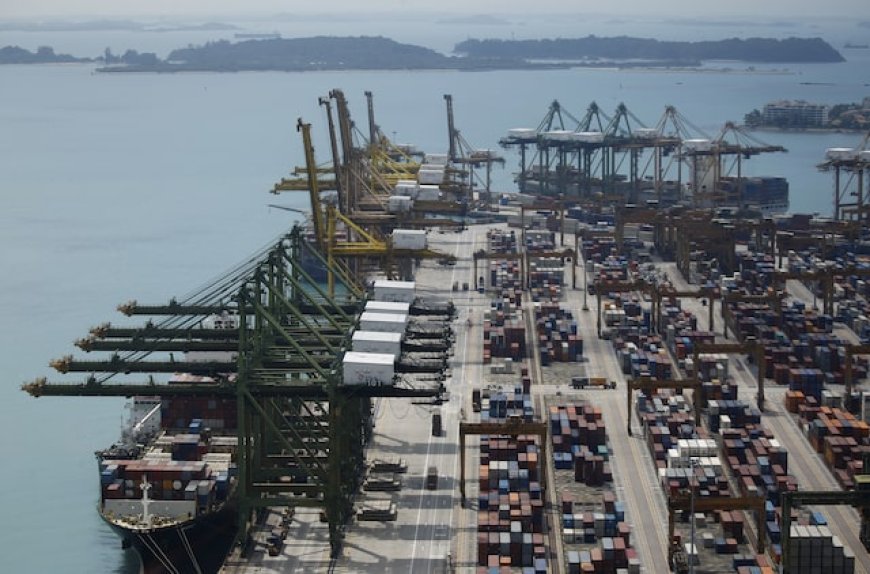Singapore expresses disappointment over the 10% tariffs and plans to seek negotiations with the US, says trade minister
Singapore expresses disappointment over the 10% tariffs and plans to seek negotiations with the US, says trade minister.

Singapore Expresses Disappointment Over US Tariffs, Seeks Negotiation: Trade Minister
Singapore has voiced its disappointment over the United States' decision to impose a 10% tariff on its exports, despite the two nations having a long-standing free-trade agreement (FTA) and Singapore running a trade deficit with the US. Trade Minister Gan Kim Yong made these remarks during a press conference on Thursday, where he outlined the government’s position on the issue and its next steps.
Concerns Over Tariff Despite Free-Trade Agreement
Minister Gan emphasized that Singapore had expected to be exempt from such tariffs due to its free-trade agreement with the US, which has been in effect since 2004. Despite this agreement, the US has imposed tariffs on Singapore’s exports, a move that has raised concerns within the country’s trade and economic sectors.
The minister also pointed out that Singapore runs a trade deficit with the US, meaning it imports more from the US than it exports. This further compounds the disappointment, as tariffs are typically imposed on countries with large trade surpluses with the US.
No Immediate Plans for Retaliation
Singapore has the legal option to take countermeasures under the provisions of the free-trade agreement. However, Gan clarified that the country has chosen not to retaliate with its own import duties.
"Retaliatory import duties will just add cost to our imports," he stated, explaining that such a move would ultimately harm Singapore’s economy rather than address the issue effectively.
Instead of imposing counter-tariffs, the Singaporean government will focus on diplomatic engagement and negotiations to seek a resolution.
Economic Forecasts Under Review
Gan also noted that the government would be reviewing its economic forecasts in light of the escalating trade tensions. The imposition of tariffs adds uncertainty to Singapore’s trade outlook, potentially affecting growth projections and business confidence.
"The worsening situation will require us to reassess our economic forecasts," he said, without specifying the expected impact on GDP growth or trade volumes.
Engaging with the US for Resolution
The trade minister reaffirmed Singapore’s commitment to constructive dialogue with the US government. He stated that Singapore would try to engage with US officials to understand President Donald Trump’s concerns and explore ways to address them.
"If there are no specific concerns, then it's more difficult to argue or to negotiate," he explained, suggesting that Singapore would seek clarity on the rationale behind the tariffs and look for mutually beneficial solutions.
Comparison with Other Southeast Asian Countries
Singapore was subjected to the US’s 10% base tariff on imports, but this is significantly lower than the tariffs imposed on other Southeast Asian nations. Six neighboring countries in the region faced tariffs ranging from 32% to 49%, making Singapore’s tariff rate relatively mild in comparison.
Despite this, the impact on Singapore’s export sector remains a concern, particularly given its dependence on international trade and its traditionally strong economic ties with the US.
Discrepancies in Trade Surplus Figures
According to data from the United States Trade Representative (USTR), the US had a goods trade surplus of $2.8 billion with Singapore in 2023—an 84.8% increase compared to the previous year. This suggests that US exports to Singapore have significantly outpaced imports.
However, Minister Gan cited Singapore’s own data, which indicated that the actual US trade surplus with Singapore was much larger—amounting to a "substantial" $30 billion in 2024. He did not provide further details on this discrepancy.
Looking Ahead
Singapore’s response to the tariffs underscores its preference for diplomatic and economic stability over retaliatory measures. By engaging in negotiations rather than escalating the trade dispute, Singapore aims to protect its economic interests while maintaining strong ties with the US.
As discussions unfold, the Singaporean government will closely monitor developments and take necessary steps to safeguard its trade and economic stability in an increasingly uncertain global environment.
What's Your Reaction?





















































































